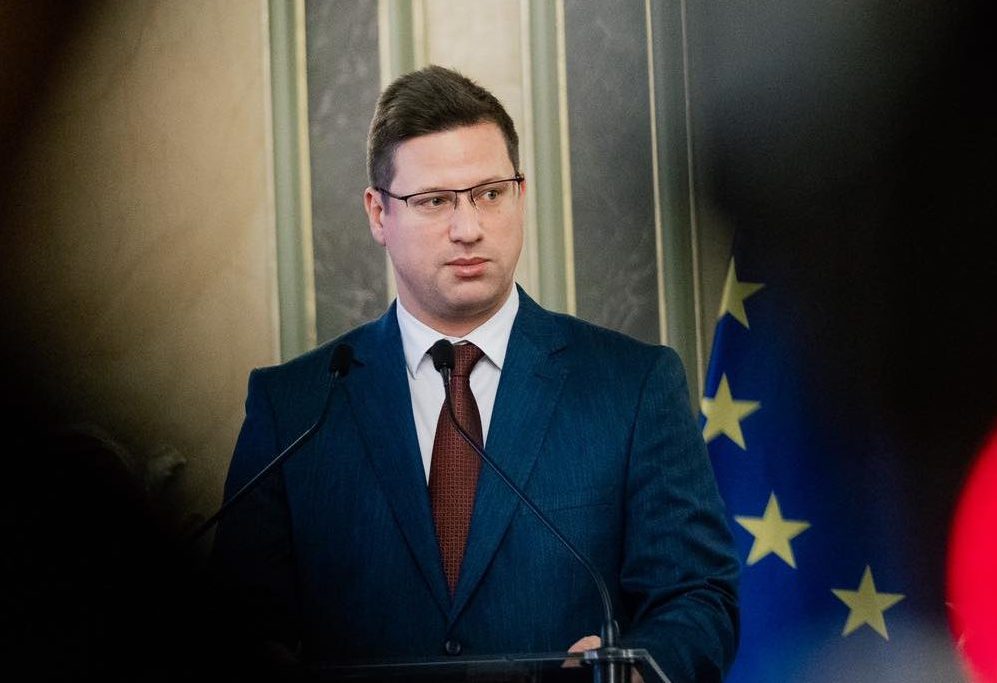
The German government continues to block the delivery of the control system needed for the Hungarian nuclear power plant, while France has already approved their part.Continue reading

“The European Union is likely blocking the disbursement of funds owed to Hungary because of sociopolitical and cultural issues. Interfering in the lives of families and in the education system is an attack on our national sovereignty,” Gergely Gulyás, the Minister of the Prime Minister’s Office, said in an interview published in the German newspaper Preussische Allgemeine Zeitung on Thursday.
Regarding Hungary’s relations with the EU, he said that Hungary is pressing for the frozen funds. However, he added that EU funds only account for 1.4 percent of Hungary’s gross domestic product, so money is not the most important issue. “The European Union is important for us – and I think for most member states – because each of us is too small a player in global economic competition. Therefore, for us it has never been a question of staying in the EU,” the Minister emphasized.
As Gergely Gulyás sees it, the European Union is holding back the funds because they want to tell Hungarians what should be taught in schools, especially about family and gender. However, the education system and the curriculum are clearly a national competence under European rules, stressed the politician.
He said that the EU’s dialogue with Hungary was improving, as exemplified by the compromise reached in December last year in a debate on the rule of law problems of which Hungary had been accused. The European Union has at least partially unblocked the funds Hungary is entitled to, but most of them remain blocked, Gulyás said, adding that the German government played an important role in this compromise.
The minister also talked about the fact that
there is a debate about the kind of European Union the member states want, whether it is about migration or the seven-year budget, and about the Commission’s desire for power and its ambition to curtail member states’ rights.
According to him, Hungary is even more special, because “we have a strong conservative policy and it has broad support among our voters.” However, he stressed that Hungary’s voice is as important for Europe as that of our partners.
On the relationship between Hungary and the current German government, he said that we are living in a serious crisis, which is a major challenge for NATO and the EU, of which both countries are members. The situation requires constant coordination between the members of both alliances, so we can have a continuous dialogue. He added that in Germany, a tripartite coalition of very different partners form the cabinet, while in Hungary, there is a stable bipartisan government in its fourth term.
“I think that both parties are aware of the role of cooperation between our states, not only for the two countries, but also for Europe. And I hope that we can have a constructive dialogue and good cooperation, at least with the majority of the members of the German government,” he noted.
On improving the country’s international image, the minister said: we know how little influence we have in Europe, especially in the media, where Hungary is rarely reported objectively. But the situation is different in tourism, for example: Budapest is one of the most popular destinations in Europe, and the same can be said of other regions in the country, the minister highlighted.
“In tourism, )music or sport, in culture and gastronomy, the achievements of Hungarians are recognized. In the economy, it is more difficult, despite the fact that Hungary is experiencing the most rapid development in its history over the last 100 years in the Orbán era,” he said, adding that we simply do not have the resources for wider lobbying at European level. “We can see where our limits are, so we are focused on building a good Hungary and on achieving the best for the Hungarian nation,” Gulyás said.
Featured photo via Facebook/Gergely Gulyás